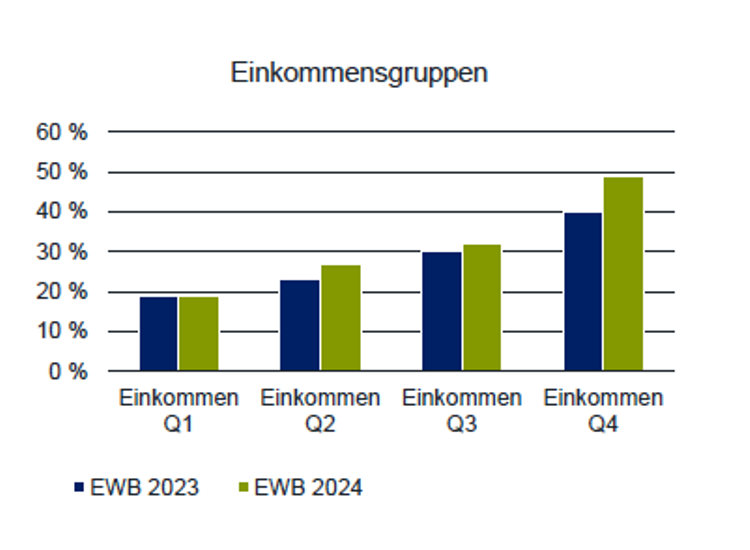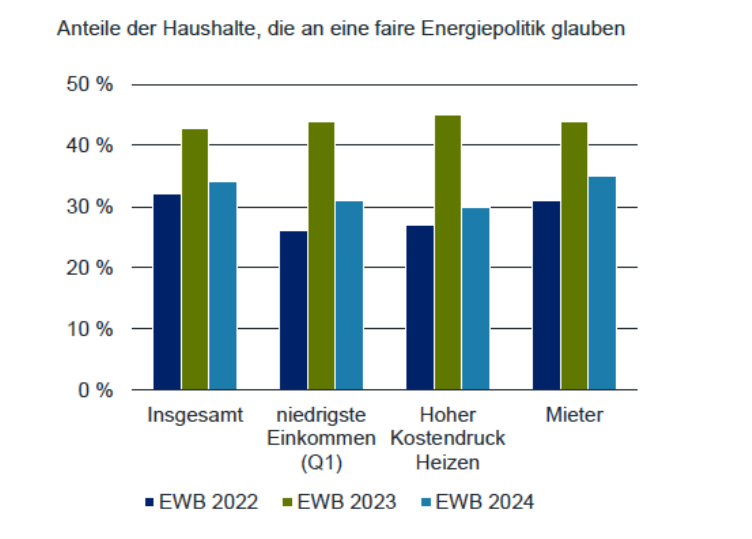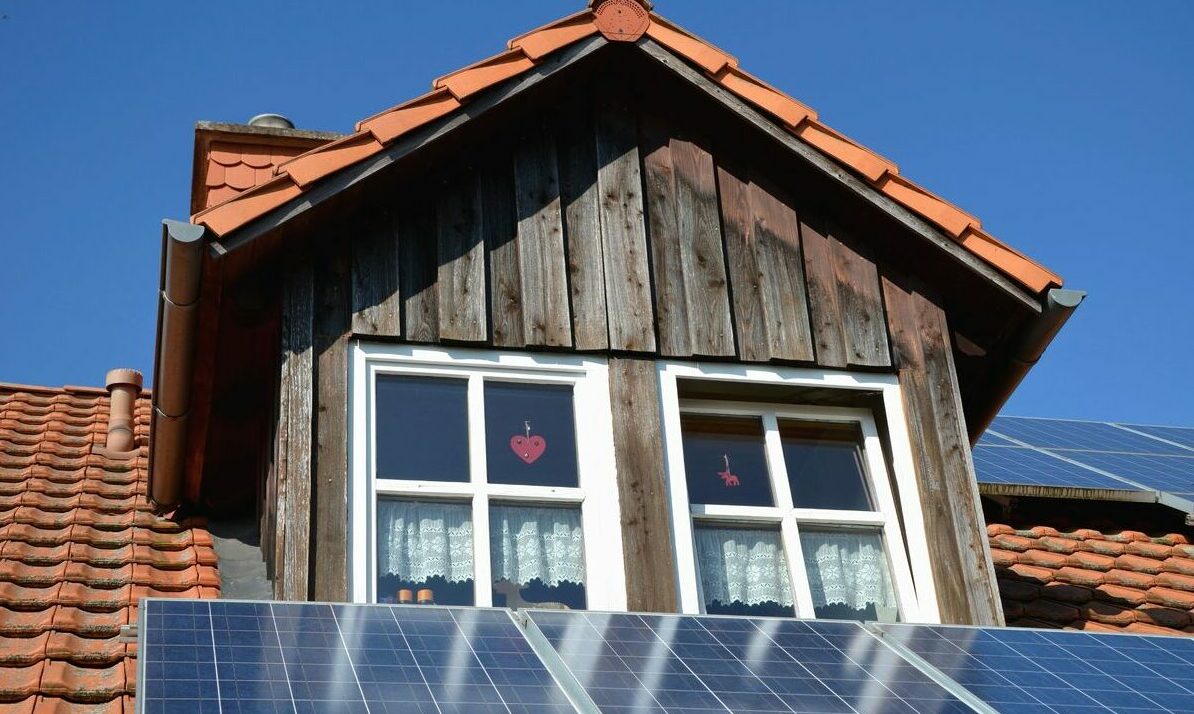The energy transition is especially popular in rural areas. The heated debates about heat pumps and wind turbines have impressed the German public much less than one might think. This shows the current one Opinion poll the KFW Bank.
Four out of five respondents support green technologies. Specifically: 82% of 6,000 households surveyed from January to April support switching from fossil fuels to renewable energies. This is slightly lower than 88 percent the previous year. Despite the traffic light drama, the opposition's rebuke, and the media hype about the “heating hammer,” Germans do not appear to be deeply unsettled.
Since the last survey, 1.2 million households have switched to “energy conversion technologies”. This means you use a photovoltaic or solar thermal system, have a battery storage system, heat with wood pellets, combine heat and energy (local and district heating) or drive an electric car.
Overall, nearly a third (31%) of German households use at least one of these technologies, and 6% plan to purchase one in the next 12 months. Solar energy and battery storage systems are particularly popular right now.
The more rural, the greener the energy
The idea that green technologies are especially popular in cities, while people in rural areas prefer to stick with tried and tested technologies and sue every wind turbine, has turned out to be a myth. In rural communities, almost half of households use energy conversion technology – significantly higher than the German average. However, growth last year was particularly strong in medium-sized cities.
The country is leaving cities behind in the green race. Why is this? Very simple: it's worth it. At least in the long term, heat pumps and solar roofs are more financially attractive. Survey respondents cited cost savings, climate protection and independence from energy suppliers as main reasons for the change. Those who are currently planning only sustainable conversions add increasing property value as a motivation. The technology used is often secondary.
“People are not stupid,” says Christian Stocker in a commentary for: “Spiegel Online” together. Or to put it another way: when it comes to money, ideology is silent.
The green gap between urban and rural areas can be partly explained, Stocker continues. In cities, many people are renters and therefore have little influence over how their apartment is powered. Those who live on their own properties in the country are more likely to be able to decide for themselves how to generate and use energy. The decision in favor of green technologies is not primarily related to education: the largest group of converts have master's degrees, followed by academic families.
Those who can afford it are likely to rely on green technologies
Next surprise: The proportion of “households moving to the energy sector” is largest in the more skeptical south, namely in Baden-Württemberg (28%), Bavaria (42%), Hesse and Rhineland-Palatinate. In eastern Germany, their percentage is much lower.
At this point, the survey also shows that there is a gap behind the German energy transition. Or in other words: the energy transition must be socially just. The advantage of the southern federal states is also an advantage for the wealthy – those in a good financial situation are more likely to change.
Among households in the highest income quartile, about half use green technologies, while this percentage is only 19 percent in the lowest income quartile. Compared to the previous year, the proportion of low-income families changed little.

Two-fifths of households open to green technologies said they simply could not afford the transition.
Households in particular, where energy costs eat up a relatively large proportion of their income, receive the least relief. In addition, low-income households often live in energy-efficient buildings, says KfW economist Daniel Romer in a statement. KfW press release.
Energy policy must become fairer
Among the points that should worry politicians: The percentage of those who see German energy policy as fair has decreased significantly since the last poll, especially among low-income families. Support for the energy transition is strongly linked to the perception of fairness in climate policy – and of course also to the willingness to actually implement changes.
The fairer participants' perception of climate policy was, the more willing they were to install a rooftop photovoltaic system or a heat pump in the garden. However, without widespread support among the population, Germany will not be able to achieve its climate goals.

Interests related to the topic of the author
no
_____________________
➔ Articles like this are only possible thanks to your donations. You can deduct donations to our foundation on your taxes.
_____________________
The opinions expressed in articles on Infosperber correspond to the author's personal assessments.

“Certified tv guru. Reader. Professional writer. Avid introvert. Extreme pop culture buff.”

![Create the most powerful and original magic and overwhelm the monsters! “Spell Fragments” is a roguelike-like TPS game where magical creativity is key[TGS2024]](https://www.4gamer.net/games/836/G083670/20240928017/SS/004.jpg)




More Stories
The professor gives the students a simple task
G7 Agriculture in Syracuse with Minister Lollobrigida – video
Manchester opens a $2.3 billion scientific and technological innovation zone